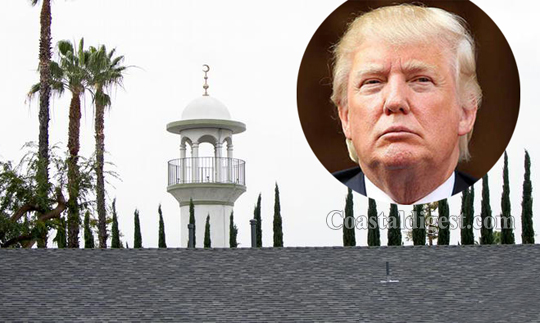Washington, Nov 28: Amid reports of spurt in hate crimes against Muslims after the electoral victory of Donald Trump, several mosques in the US have allegedly received threatening letters and emails against the community in the country.
An anonymous handwritten letter, which so far has been received by three mosques in California and one in Georgia, warned Muslims to pack your bags and get out of dodge as Trump is going to cleanse America and make it shine again.
Anti-Muslim bigotry has surged since the Election Day, claimed Edward Ahmed Mitchell, executive director of Council on American-Islamic Relations (CAIR-GA).
"Whoever sent these letters should know that they have only strengthened our resolve to keep practicing our faith, defending our rights and building bridges with our neighbours," he said.
Hussam Ayloush, director of Los Angeles chapter of CAIR A these hate letters are designed to intimidate Muslims in the US.
In a statement, CAIR calimed more than 100 anti-Muslim incidents have occurred across the country after the November 8 general elections. Southern Poverty Law Center has documents more than 700 incidents targeting different minority groups.
After being elected as the 45th president of the US, Trump has spoken against all kinds of hate-crimes. However, there has been no response from him in the aftermath of the series of hate letters being received by mosques in different parts of the country.
A query sent to the transition team remained unanswered. After a mosque was vandalised in her Congressional District in Washington States last week, Indian-American Congresswoman-elect Pramila Jayapal said, "I am deeply troubled that hate crimes against Muslims and minorities are on the rise, in particular at places of worship and schools."
"I strongly condemn this hateful act of vandalism of a place of worship. Hate has no place in our community, and we all stand united rejecting these actions in unequivocal terms," she had said.








Comments
When difficulty come u come with above dialouges, where was ur so concern when ur people where destroying Christians,yezidis & shias or sunnis in syria & Iraq.
Allah only knows the future. So, the only solution is be patience and strengthen our faiths with Allah.
Every masjid's in this world is for Allah. My advise is with entire Muslims from the globe to be patient and never be panic. The control of the universe with almighty Allah. Fear only Allah, no power of this material world would touch the Muslims if we hold the rope of Allah firmly. may Allah strengthen our Eemaan.
Add new comment